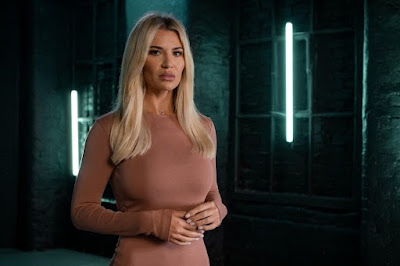A few weeks ago, I sat in front of the telly and watched the first episode of Chris Packham’s series Inside Our Autistic Minds and cried most of the way through. Afterwards I told everyone how brilliant it was.
Yesterday, I sat down in front of iPlayer and watched Christine McGuinness’s new documentary Unmasking My Autism with low expectations.
Actually they both did a good job, and they both did different jobs.
(And remember, despite all the stick the corporation has had recently, they are both on the BBC. “Worth the licence fee”, as Packham likes to say.)
Yes, I am prejudiced and I did pre-judge. I identified with one presenter more than the other because I’m over 60, over-educated and middle-class. Also, as a 1980s feminist I’m averse to reality-TV hyper-real femininity (I still don’t understand why so many women want to look like Pete Burns AFTER the operations).
Identity politics, much? It gets worse. One of the people who was involved in the Chris Packham series (impressively, it had an autistic crew) has complained that the McGuinness doc uses the phrase “with autism” rather than “autistic”. Because most autistic people prefer the latter, and there are layers of problematic connotations with the former.
But actually it didn’t matter that much. What mattered is that McGuinness raised a really important issue in an accessible way. And because many viewers will identify with her, that will encourage them to learn from her.
The main point of the programme is, as in many things in the world, a gender data gap. Many women don’t know they are autistic until late in life, because all the research has been done on how autism looks in men and boys. (Many women, as we saw in the programme, are misdiagnosed with various mental illnesses, and even sectioned.)
It’s straight out of Invisible Women. I’m a big Caroline Criado Perez fan, but the programme would not have had the same impact if she had presented it. It needed to be someone with personal experience who could share that experience in a way that “normal” viewers could identify with.
(There were experts, though, and that is what I loved most about the programme – women experts, doing research into autistic women. You would never know from all the other TV programmes about autism that these women even exist. They’ve been invisible too.)
Although I don’t identify with McGuinness, I did identify with a lot of things she said.
And actually, it wasn’t just snobbery that meant I had low hopes of the programme. It’s the one she did with her (now ex) husband a few years ago about being parents of autistic children. This one was so much better.
It was all about us. Autistic women. (Packham’s programme had only one woman out of the four featured autistics.) Women who struggle with change and a need for structure, with sensory issues and eating disorders, with relationships, abuse and domestic violence. And with “wondering if I laughed when I was supposed to”.
I didn’t learn anything new, and some of it was a bit “autism 101”. But it needed to be. “Oh,” said one impressed newspaper reviewer, “Unmasking is a pun.” Duh.
Masking – adapting your behaviour, often unconsciously, to fit in – was a key theme. It’s one of the reasons that autistic women don’t get noticed. And it’s one of the reasons that so many of us struggle with a sense of identity.
"I realised the power of pretending", said McGuinness about her early career in beauty pageants and modelling. "It was something I found easy because I was given a role to play, I didn't have to be me."
Later, she said: "When I got diagnosed, I set out to figure out who I was, because I played that many different roles in life, not really knowing which part of it was actually me."
It’s something I still struggle with. A few years ago I went off Facebook for a while. Not for Lent but because, as I told my friends, “I don’t know who I am any more.” On social media you are always inhabiting a persona and I needed to get away from the constant role playing.
But it’s not just social media. It’s “real” life too. Looking back (and I’m at the age now when you do that), I can see myself trying on lots of different personalities for size, and I still don’t know which one fits.
And this was the reason I cried in part one of Inside Our Autistic Minds. Because when I listened to the first interviewee, Flo, I identified with so much of what she said. Watching her interviews, I connected on a head level. But when I saw her film, it hit home on a gut level. Because I don't think I know now how not to mask.



I felt much the same; I debated whether to watch both. Glad I did as it was so validating to see so many older women in the CM documentary. I’m patiently waiting for a programme about late diagnosed autistic women. Great piece Penny.
ReplyDeleteThank you Colette. Still waiting to see a programme about older autistic women with REALLY late diagnosis. Age 30 is nothing!
ReplyDelete